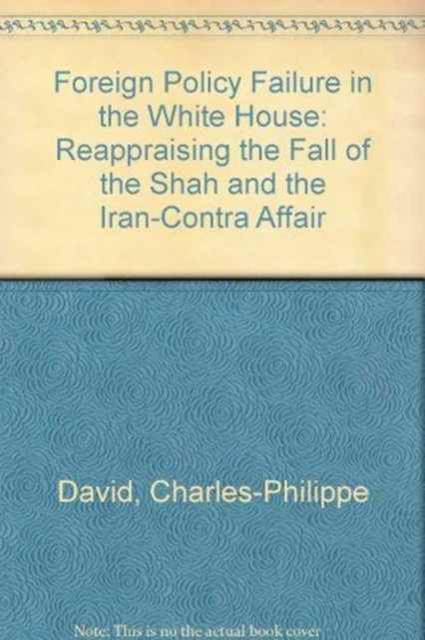
- Afhalen na 1 uur in een winkel met voorraad
- Gratis thuislevering in België vanaf € 30
- Ruim aanbod met 7 miljoen producten
- Afhalen na 1 uur in een winkel met voorraad
- Gratis thuislevering in België vanaf € 30
- Ruim aanbod met 7 miljoen producten
Zoeken
Foreign Policy Failure in the White House
Reappraising the Fall of the Shah and the Iran-Contra Affair
Charles-Philippe David
Paperback | Engels
€ 51,95
+ 103 punten
Omschrijving
Through a close inspection of empirical evidence, the authors wish to show how high-level policymakers are beset by complex decision-making tasks that the rational and systemic perspective fails entirely to take into account. This book focuses on the contributions of both cognitive psychology and the analysis of bureaucratic politics to the understanding of foreign policy decisions made by individuals, small groups, and large organizations. Two recent events are investigated: the fall of the Shah of Iran (1979), and the Iran-Contra affair (1986). This work offers new evidence through a detailed examination of primary sources, particularly internal government documents, messages, and reports newly declassified by the National Security Archive in Washington. Most of this material has not been accessible to previous writers.
Specificaties
Betrokkenen
- Auteur(s):
- Uitgeverij:
Inhoud
- Aantal bladzijden:
- 198
- Taal:
- Engels
Eigenschappen
- Productcode (EAN):
- 9780819190765
- Verschijningsdatum:
- 2/07/1993
- Uitvoering:
- Paperback
- Formaat:
- Trade paperback (VS)
- Afmetingen:
- 138 mm x 213 mm
- Gewicht:
- 231 g

Alleen bij Standaard Boekhandel
+ 103 punten op je klantenkaart van Standaard Boekhandel
Beoordelingen
We publiceren alleen reviews die voldoen aan de voorwaarden voor reviews. Bekijk onze voorwaarden voor reviews.











